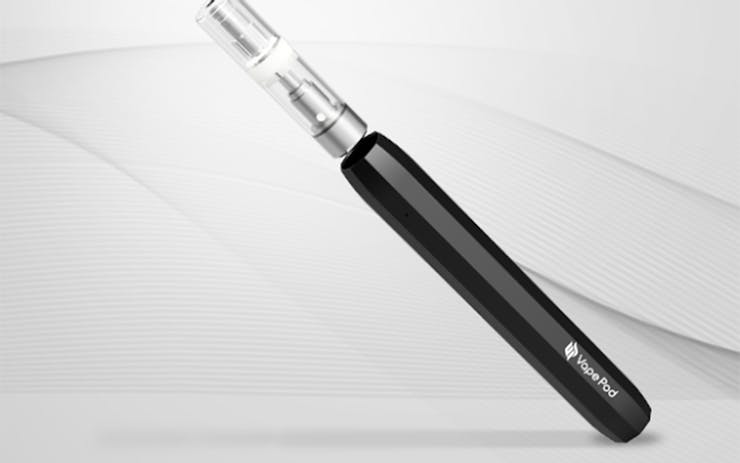TEL AVIV, ISRAEL — This city is a nutty place, full of contradictions, a liberal bubble inside a conservative country. It has a thriving LGBT population, most restaurants offer a vegan menu, and there are more cannabis clouds on its clogged streets than in San Francisco or Denver.
Although Israel has no legal recreational market – it’s still against the law to sell bongs or vaporizers – many Tel Avivians are smoking spliffs in the bars, in the streets, on the beach, and outside the CannaTech conference I attended earlier this year. Mind you, in Israel the only people legally allowed to use cannabis are the 28,000 patients enrolled in the state medical cannabis program. The laws here, like most places in the world, haven’t yet caught up with reality.
The CannaTech gathering focused on the intersection of technology, pharma, and cannabis—and offered a peek at the future of cannabis delivery systems.
Here are a few tech innovations that I saw at the conference (and outside of it as well) that could be appearing in North American dispensaries in the not-so-distant future.
Yes, a Vibrating Vaporizer
Disposable oil-cartridge vape pens may be discreet and easy to use, but they break and clog too frequently. The oils, which are typically thinned with propylene glycol, scratch the throat, and the Chinese-made metal coils that heat them can break down at high temperatures.

Kanabo founder Avihu Tamir with an early VapePod prototype: You stop inhaling when it stops vibrating.
The Kanabo VapePod offers an alternative for patients who want a metered, temperature-controlled dose. Kanabo has replaced the metal coil with a ceramic oven inside a cartridge. Especially useful to inexperienced patients is the way the device vibrates when you’re pulling and stops once you’ve reached the correct dose. You can also set the exact temperature through an app on your phone, which allows you to target specific cannabinoids, each of which has a different burning point.
Kanabo CEO and founder Avihu Tamir says he got the idea when he was prescribed cannabis for migraines but found the notion of smoking medicine “ridiculous.” A lot of smoke-averse patients would agree. Because the VapePod is initially aimed at the medical market, Tamir designed the product to be well-functioning and intentionally unsexy–although the product’s latest incarnation, pictured up top, has obviously undergone a design upgrade. I can see this translating to the recreational market fairly easily. Put a titanium finish on that vape, and you’ve got a potential winner in the expanding rec markets.
Is This The Future of the Dab?
It could be if medical cannabis gets restructured along a strict pharma model.
The developers at Panaxia have repackaged whole plant extracts into pills, inhalers, transdermal patches and yes, suppositories. Panaxia’s manufacturing facility is in New Mexico, but most of it R&D happens in Israel and is managed by scientists affiliated with the Weizmann Institute of Science, located south of Tel Aviv.
Companies like these are betting that seniors and other patients with severe illnesses won’t want to fiddle or futz with tinctures, oils or green capsules—and may fear a medicine that’s been criminalized for more than 80 years. I think companies like Panaxia stand a great chance of succeeding. After all, the pharma industrial complex has medicalized death, birth, and school. Why should cannabis be any different?
With its cutting-edge inhaler, Panaxia dresses up plant-derived THC and CBD in drab but familiar clothes. The inhaler has a 2.5 mg hit of THC, which Eran Goldberg, Panaxia’s CTO, claims hits as fast as a dab and offers immediate pain relief. In March, Panaxia announced that it had entered into a joint venture with Ultra Health, a New Mexico medical marijuana producer, to manufacture the inhalers, as well as tablets and suppositories, at a planned $1 million facility in Bernalillo, a few miles north of Albuquerque. The products may eventually be available in both New Mexico and in Nevada, as Ultra Health is working with the Paiute Tribe on their grow and retail facilities in that state.
Panaxia’s sublingual pastilles have a special heat-activated compound that helps cannabinoids absorb into the mouth tissues more quickly. The bitter taste of THC molecules in the lozenges are “wrapped” in a food grade polymer and camouflaged by menthol. Rectal suppositories are used for colitis or IBS; vaginal for menstrual cramps.
All of these developments are impressive, but there are two things missing: One are formulations with a ratio of THC to CBD. The mixing of these two compounds has been shown to yield better results than single-compound formulas. The second missing element: There no reports from patients who have used them yet, so we won’t know how effective they are for a while.
One thing is clear: the facility that produces these pills is one of the most secure pharma labs in the world. Did I say “facility?” Sorry, “fortress” is more accurate. The Israeli police insisted the company build a $1.5 million steel wall around its lab and then install a 24-hour armed guard to watch over the “raw product” stored within. No other lab—even those that produce opioids—is required to have this kind of security. Does it make sense? Of course not, but that’s the high cost of being a cannabis pioneer.






